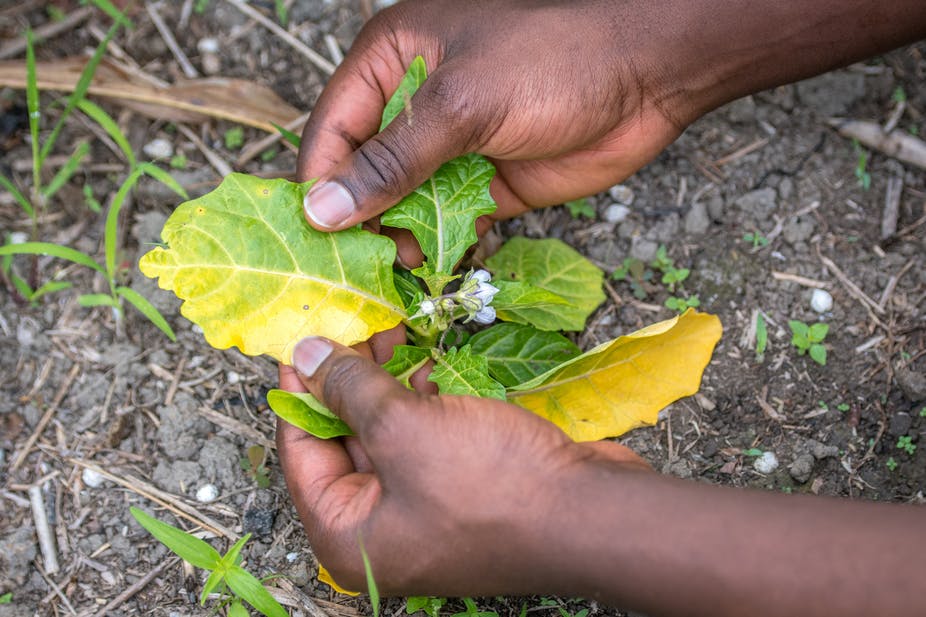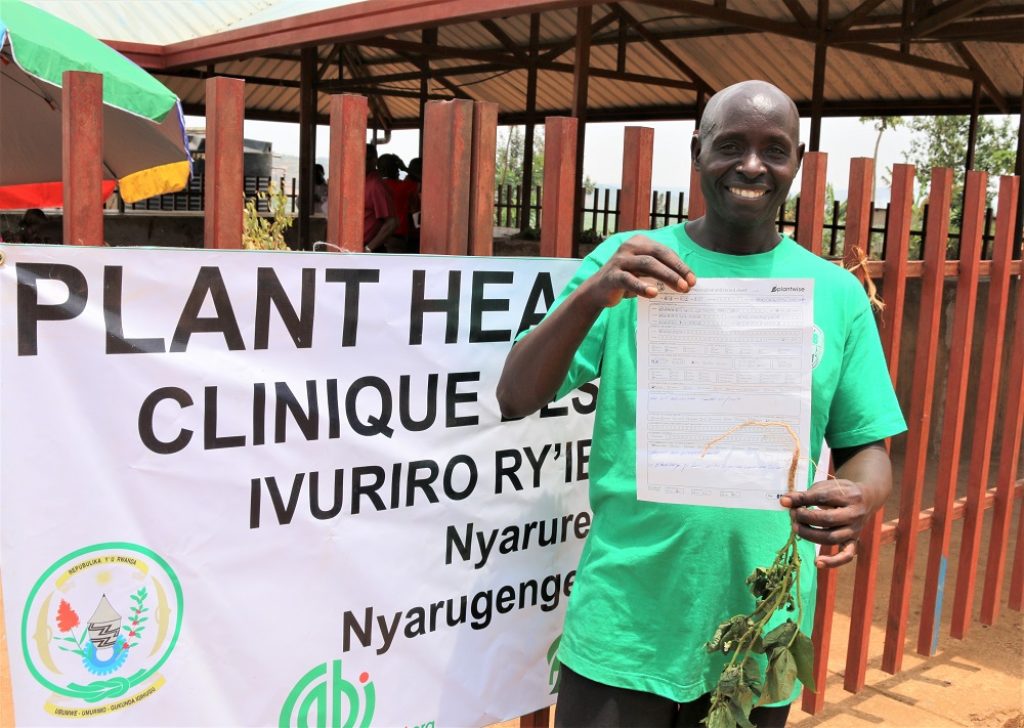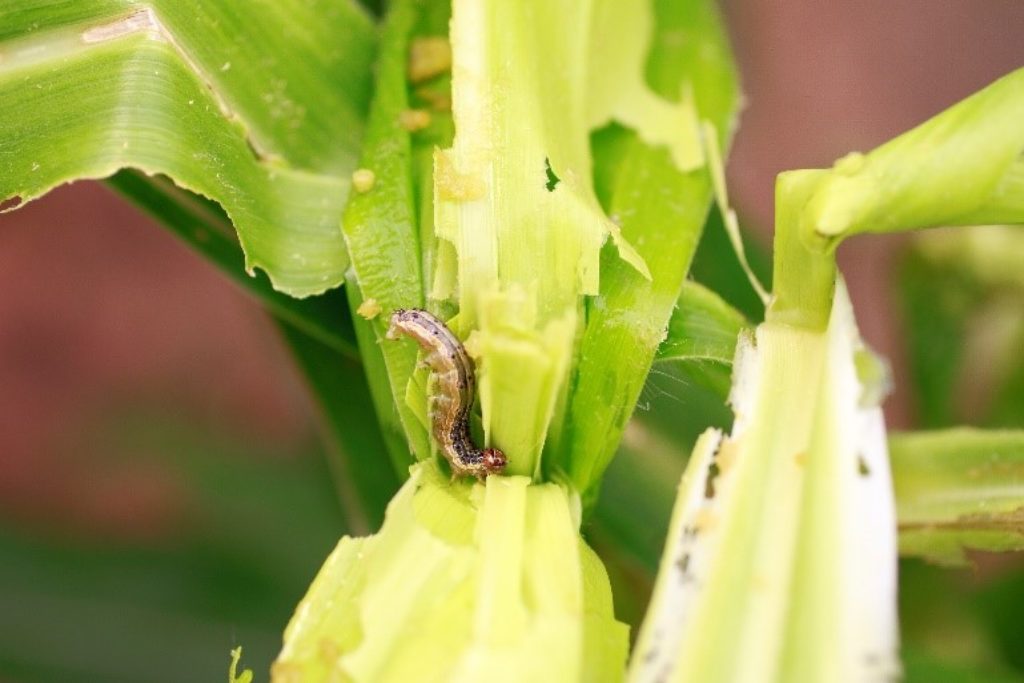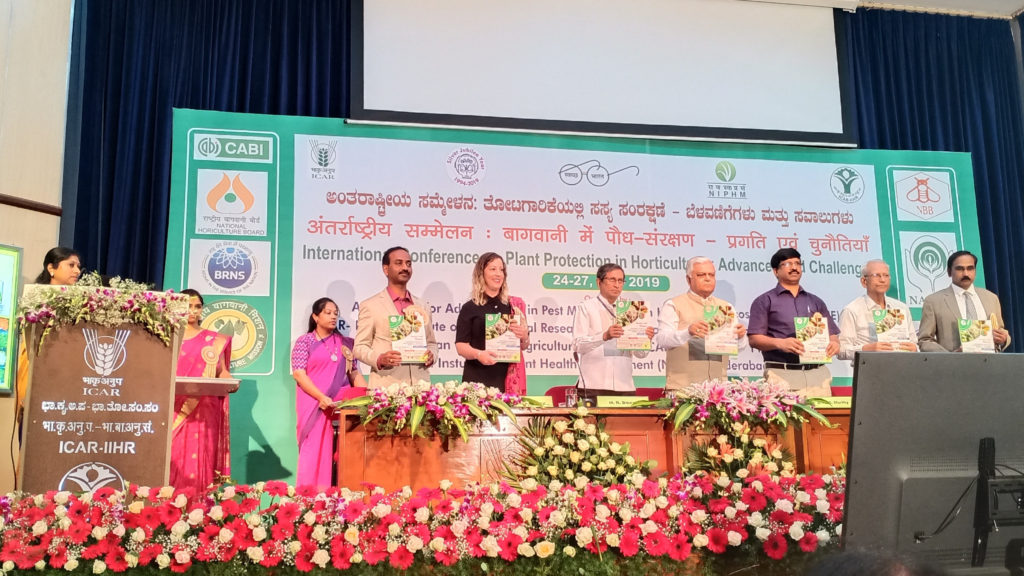CABI programmes showcased at International Conference on Plant Protection in Horticulture
CABI programmes, Plantwise and Action on Invasives, have showcased their expertise in plant protection and improving rural livelihoods to a global audience of agriculture experts and scientists at the recent International Conference on Plant Protection in Horticulture held at ICAR-Indian Institute of Horticultural Research, Bengaluru.
Plantwise helps with managing the invasive Fall Armyworm in Vietnam
During a recent visit to a plant clinic session in Vinh Phuc, Vietnam, first-hand evidence of this devastating invasive pest was shown to visiting CABI staff. A 76-year-old farmer, Madam Nguyen Thi Nam brought along damaged maize plant to seek advice from the plant doctor, Mrs Dang Thi Quynh Nga.
Joint forces against highly invasive Fall Armyworm Pest
Reblogged from plantix. PEAT, CABI and ICRISAT launch the first live tracking tool for Fall Armyworm (FAW) in India. The Fall Armyworm is a very invasive pest which is highly destructive to more than 80 plant species. The pest is native to America and has conquered the African continent in 2016. Since then, it has…
CABI warns of rapid spread of crop-devastating fall armyworm across Asia
CABI scientists have today warned of the impending rapid spread of the crop-devastating pest, fall armyworm, across Asia following its arrival in India, with major crop losses expected unless urgent action is taken. The warning comes following a pest alert published this week by the Indian Council of Agricultural Research (ICAR) on the website of one of…
Farmers Need Long-Term and Short-Term Solutions to Combat Fall Armyworm in Kenya
Reblogged from Farming First. From a distance, Wycliffe Ngoda’s two acres of shiny green maize crops look healthy and lush. But the tell-tale holes in the leaves and debris on the stems give away an increasingly dangerous secret hidden in more and more maize fields across Kenya and sub-Saharan Africa. The rampant Fall Armyworm caterpillar is…
Why African farmers should balance pesticides with other control methods
By Esther Ndumi Ngumbi. Reblogged from The Conversation. Insect pests cause almost half of the crop losses in Africa. If the continent is to feed its growing population, farmers must find ways to control them. Pests account for high losses in other developing regions too. For smallholder farmers in particular, pest management needs to be affordable, safe…
Fall Armyworm: A new collaboration to disseminate best management practices to farmers
From the 13th to the 15th of November 2017, USAID and CIMMYT held a Regional Training and Awareness Generation Workshop on Fall Armyworm Pest Management for Eastern Africa in Addis Ababa, Ethiopia. Participants from 11 countries attended the workshop to discuss short, medium and long term strategies to control Fall Armyworm in Africa. Following its…






